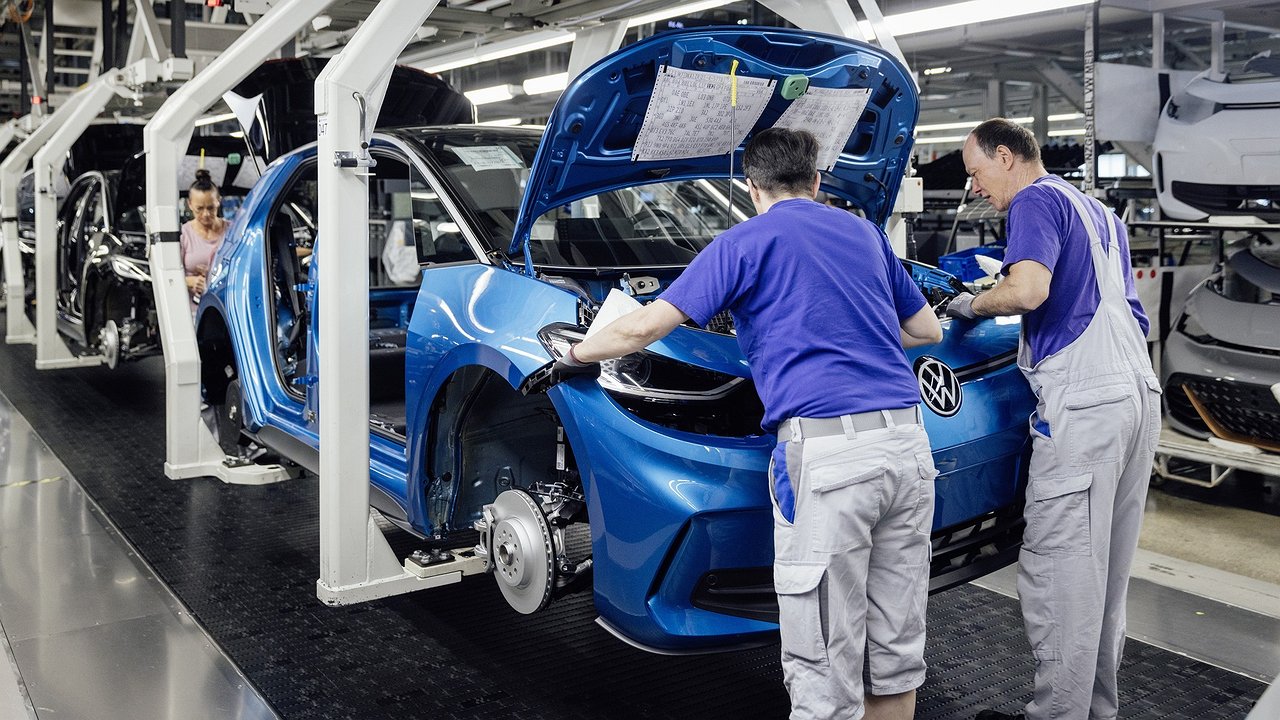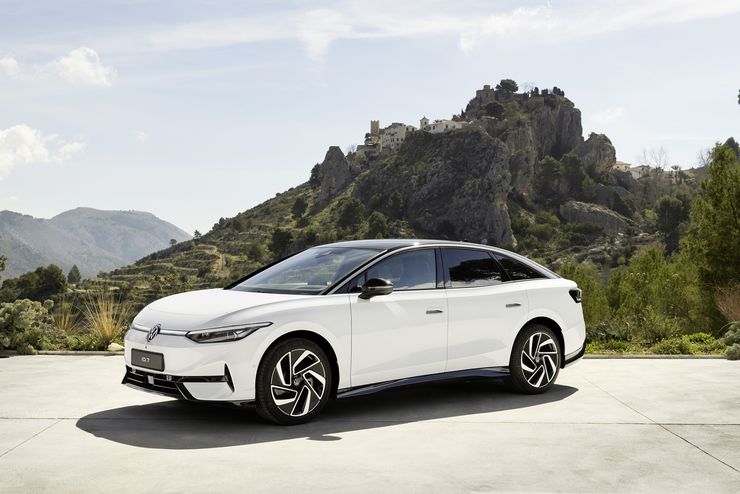Volkswagen is a corpse, but he doesn’t know that yet
- December 25, 2023
- 0
The German automaker, which once competed with competitors year after year for the top spot in the world car market, is experiencing a systemic crisis. That could be
The German automaker, which once competed with competitors year after year for the top spot in the world car market, is experiencing a systemic crisis. That could be

Volkswagen recently announced the largest cost savings program in its history. First of all, VW wants to save 1 billion euros in five years by reducing the development period for new models from 50 to 36 months. By halving the number of prototype test machines, the company’s budget should save another 400 million euros per year. A further EUR 320 million will be released by reducing the preparation time for the production of new models. The reorganization of the aftersales activities will generate more than 250 million euros per year for Volkswagen.
With these and a number of other measures, including staff reductions, the group is expected to save a total of more than 10 billion euros. Such large-scale steps are usually taken when a company is in an economic impasse: management understands that continuing on the usual course is tantamount to death, but cannot deviate from the beaten path that leads downhill.
One of the explanations for what is happening is related to the global trend towards electromobilization of the world’s leading car markets, which Volkswagen, strangely enough, does not fit into.
The problems started in 2019. The then head of Volkswagen, Herbert Diess, understood that it was only possible to maintain its position in the most important car markets in the world – the USA and China – by joining the race of electric vehicle manufacturers . VW already had its own electric platform MEB at the time. Now the ID.3, ID.4 and ID.7 models are built on it.
Even then it was clear that it wasn’t perfect and that we had to follow Tesla’s path: turning an electric car into a computer on wheels. The Software Defined Vehicle (SDV) business concept was adopted and the subsidiary Cariad was founded. The intention was to develop software for fully electric cars of all brands of the Volkswagen Group. But so far, after five years, Cariad has not been able to produce a completed working product.
What led to the delay in the implementation of the Premium Platform Electric (PPE) architecture: the Porsche Macan EV, Audi Q6 e-tron and Audi A6 e-tron are ready for production, including their hardware, but there is no software yet for them.
For such a ‘fuck’, Diess was removed from his position as head of VW. And the new management of the concern froze all its projects, including the construction of a huge electric vehicle factory in Wolfsburg. At the same time, the Volkswagen Group stopped developing all electric vehicle platforms.
If the company fails to develop electric vehicles at a time when other automakers are stepping up their efforts in this area, Volkswagen risks being pushed out of key markets by rivals. Sales of Volkswagen’s electric vehicles are falling rapidly. Moreover, both in Europe and in China, which accounts for 40% of Volkswagen’s global sales.
Losing this market is very bad news. Because sales of Volkswagen electric vehicles in Europe are not looking much better. This has already led to recent production stops at the company’s main factories. Against this backdrop, Volkswagen’s decision to invest in Chinese electric carmaker Xpeng Motors looks like a fire measure. There are no guarantees that a positive effect will result.
In assessing what is happening, a number of American and European experts call the steps taken by VW management “the rearrangement of the deck chairs on the deck of the sinking Titanic.” Which, translated into Russian, means: Volkswagen is already dead, it just doesn’t know it yet.


Volkswagen recently announced the largest cost savings program in its history. First of all, VW wants to save 1 billion euros in five years by reducing the development period for new models from 50 to 36 months. By halving the number of prototype test machines, the company’s budget should save another 400 million euros per year. A further EUR 320 million will be released by reducing the preparation time for the production of new models. The reorganization of the aftersales activities will generate more than 250 million euros per year for Volkswagen.
With these and a number of other measures, including staff reductions, the group is expected to save a total of more than 10 billion euros. Such large-scale steps are usually taken when a company is in an economic impasse: management understands that continuing on the usual course is tantamount to death, but cannot deviate from the beaten path that leads downhill.
One of the explanations for what is happening is related to the global trend towards electromobilization of the world’s leading car markets, which Volkswagen, strangely enough, does not fit into.
The problems started in 2019. The then head of Volkswagen, Herbert Diess, understood that it was only possible to maintain its position in the most important car markets in the world – the USA and China – by joining the race of electric vehicle manufacturers . VW already had its own electric platform MEB at the time. Now the ID.3, ID.4 and ID.7 models are built on it.
Even then it was clear that it wasn’t perfect and that we had to follow Tesla’s path: turning an electric car into a computer on wheels. The Software Defined Vehicle (SDV) business concept was adopted and the subsidiary Cariad was founded. The intention was to develop software for fully electric cars of all brands of the Volkswagen Group. But so far, after five years, Cariad has not yet managed to produce a completed working product.
What led to the delay in the implementation of the Premium Platform Electric (PPE) architecture: the Porsche Macan EV, Audi Q6 e-tron and Audi A6 e-tron are ready for production, including their hardware, but there is no software yet for them.
For such a ‘fuck’, Diess was removed from his position as head of VW. And the new management of the concern froze all its projects, including the construction of a huge electric vehicle factory in Wolfsburg. At the same time, the Volkswagen Group stopped developing all electric vehicle platforms.
If the company fails to develop electric vehicles at a time when other automakers are stepping up their efforts in this area, Volkswagen risks being pushed out of key markets by rivals. Sales of Volkswagen’s electric vehicles are falling rapidly. Moreover, both in Europe and in China, which accounts for 40% of Volkswagen’s global sales.
Losing this market is very bad news. Because sales of Volkswagen electric vehicles in Europe are not looking much better. This has already led to recent production stops at the company’s main factories. Against this backdrop, Volkswagen’s decision to invest in Chinese electric carmaker Xpeng Motors looks like a fire measure. There are no guarantees that a positive effect will result.
In assessing what is happening, a number of American and European experts call the steps taken by VW management “the rearrangement of the deck chairs on the deck of the sinking Titanic.” Which, translated into Russian, means: Volkswagen is already dead, it just doesn’t know it yet.
Source: Avto Vzglyad
Donald Salinas is an experienced automobile journalist and writer for Div Bracket. He brings his readers the latest news and developments from the world of automobiles, offering a unique and knowledgeable perspective on the latest trends and innovations in the automotive industry.